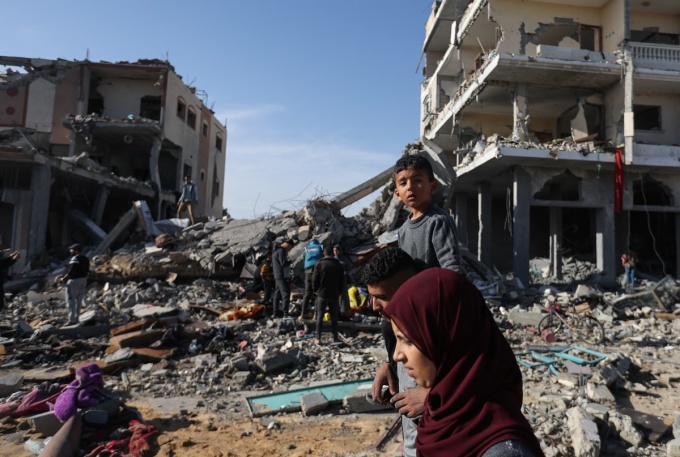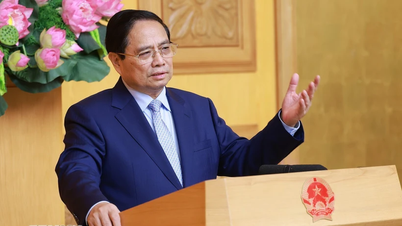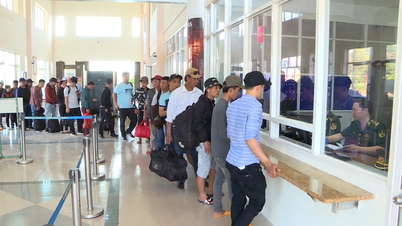In 2009, when Benjamin Netanyahu returned to power for his second stint as prime minister of Israel, he faced a major change in the region. Hamas had risen from a small-scale Islamist militant group and had taken power in the Gaza Strip since 2007.
From the start, Hamas vowed to “destroy Israel,” and Netanyahu pledged to eliminate Hamas during his 2009 election campaign. But what followed was a decade and a half of coexistence and mutual benefit, against both sides’ will.
In the process, Prime Minister Netanyahu and his successors, as well as the Hamas leadership, have found that the other side is still useful for some of their own purposes. Israel wants to use Hamas to contain other Palestinian political forces, while Hamas takes advantage of Tel Aviv's détente policy to accumulate and build up its forces and influence.
This strange "symbiotic" relationship has persisted for years, but is now facing an unprecedented test, as both Prime Minister Netanyahu and Hamas face the possibility of losing power over the conflict in Gaza.
Hamas, which launched a raid on Israeli territory on October 7, has been hit by numerous retaliatory airstrikes and a large-scale ground offensive by Tel Aviv for nearly two months. The Israeli military has declared that Hamas will never rule Gaza again.
Amid the Israeli military onslaught, discontent with Hamas is growing in Gaza, according to Palestinian officials. Some residents have even publicly criticized Hamas for the raid in early October, provoking an unprecedented angry response from Israel.
Prime Minister Netanyahu is also facing unprecedented public anger over his failure to stop Hamas from carrying out the attack, as well as his government 's chaotic response. Polls show that 75% of Israelis have called for him to resign now or when the conflict ends.
“It’s a strange relationship that’s coming to an end,” said Israeli historian Adam Raz, who has done a study of Netanyahu’s relationship with Hamas. “Hamas will no longer be able to rule Gaza. And I think we can safely assume that Netanyahu’s political career is coming to an end.”
However, the conflict is changing rapidly and the fate of both sides is uncertain. A four-day ceasefire between Israel and Hamas began on November 24 and was extended for two more days. The two sides have completed four planned hostage exchanges. But Prime Minister Netanyahu has vowed to continue the war after the ceasefire with the goal of "eradicating Hamas."
Netanyahu's statement was very different from what he did after regaining power in 2009. Once he had formed a cabinet, Prime Minister Netanyahu abandoned his pledge to "eliminate Hamas from Gaza", instead pursuing a strategy of not disrupting the status quo, allowing Hamas to continue to rule Gaza and the Palestinian Authority to govern the West Bank.
Analysts say this "divide and rule" approach serves the political calculations of Mr. Netanyahu and those who reject a two-state solution to the Israel-Palestine conflict.
“Without unified leadership on the Palestinian side, Prime Minister Netanyahu can claim that he cannot move forward with peace talks,” explained Dahlia Scheindlin, an Israeli political analyst. “It allows him to argue that the Palestinian Authority ‘has no one to negotiate with.’”
This context allowed Netanyahu to set aside the “Palestinian question,” which had defined the tenure of Israeli leaders for the past four decades. Instead, Netanyahu focused on Iran and other threats and on his goal of developing Israel into an economic powerhouse, according to Netanyahu biographer Anshel Pfeffer.
“Netanyahu has always viewed the Palestinian conflict as a way to distract from divisive issues in Israel,” Pfeffer said.
Year after year, successive Netanyahu cabinets have passed policies that have eased pressure on Hamas. Israel has agreed to periodically release prisoners, transfer money from Qatar to pay government workers in Gaza, improve infrastructure and even fund Hamas’ military operations, according to government critics.
Israeli leaders hope to block any reconciliation drive between Hamas and the Palestinian Authority, even as the two sides move closer to rapprochement in 2018.
"Over the past 10 years, Netanyahu has worked to block any attempt to eliminate Hamas in Gaza," Raz said.
A senior official in Netanyahu's cabinet, speaking on condition of anonymity, said he "hit Hamas harder than any prime minister in history." But in reality, Netanyahu's administration has continued to grant thousands of Gazans work permits in Israel, bringing in huge revenues for the Strip government and strengthening Hamas' position.

Hamas gunmen take part in an anti-Israel military parade in Gaza City in 2015. Photo: Reuters
During that period of truce, Israel's stability remained relatively stable. Hamas occasionally launched rockets into Israel, but the numbers were small and most were intercepted by air defense systems.
The conflict flared up at times, but ended quickly with negotiations that led to ceasefires. Hamas still holds sway in Gaza, and Netanyahu’s government has increasingly hoped that the group can become a more reliable governing body focused on developing Gaza’s economy rather than pursuing its own efforts against Israel.
Netanyahu is not the only one who sees benefits in this situation. Moderates in Israel are beginning to envision a future where they can live alongside a stable Gaza with a better standard of living. Business people are praising Israel’s steadily improving relations with its Arab neighbors.
Exports from Gaza have begun to grow. Before the Hamas raid on October 7, Prime Minister Netanyahu’s government had granted permits for 18,000 Gazans to work in Israel, where wages are significantly higher.
Now, Prime Minister Netanyahu's strategy of "coddling" Hamas in Gaza is causing many Israelis to feel skeptical. Public anger has pushed Prime Minister Netanyahu's approval ratings to historic lows. According to Scheindlin, only 25% of voters now think he is the most suitable politician to lead the country.
“The hard right wants him to destroy Hamas, and the center and left wish he hadn't abandoned the path to negotiations with the Palestinians,” Scheindlin said.
In Gaza, which has not held elections since 2006, it is harder to gauge support for Hamas. Before the war, fear of Hamas made people reluctant to criticize the group. Now, after nearly two months of siege and airstrikes, many Gazans are more willing to criticize Hamas on social media and in interviews.
“I don’t mind saying this: We don’t want Hamas, not because of the conflict but for many years,” said Ahmad, 44, a pharmacist from the central Gaza Strip city of Deir al-Balah. “Their lack of proper governance has left us in poverty and misery. It has been exacerbated by the war.”

A scene of devastation in the city of Khan Younis, southern Gaza Strip, on November 24. Photo: Reuters
Motaz, 39, said Hamas' attacks on Israel left him "terrified" and his family exposed to Israeli retaliatory air strikes. Motaz's grocery store in Khan Younis was destroyed last month.
Motaz does not believe Hamas can continue to exist, but he believes any change in leadership will not make a difference to the people of Gaza.
“Even if Hamas stays in power, what is left for us here?” he asked. “No more home, no more job. I have lost my only source of livelihood.”
Vu Hoang (According to Washington Post )
Source link





































































































Comment (0)